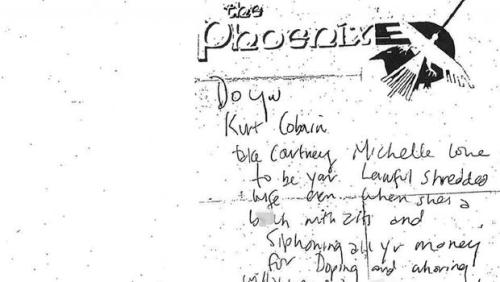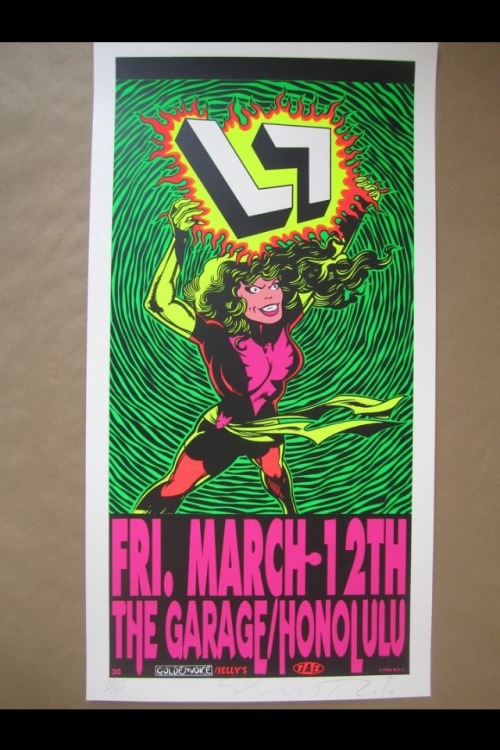Steve Albini: “Record labels, which used to have complete control, are essentially irrelevant ”

Sacado de // From –> http://portalternativo.com/ – http://qz.com/
El siempre polémico asunto de la música en ‘streaming’ sigue generando debate y el último en mostrar su postura ha sido el siempre claro Steve Albini.
Y es que se cumplen 20 años desde que escribió un artículo para la revista The Baffler titulado “El problema con la música” en el que explicaba como toda la “cadena alimentaria” de la música estaba hecha para que todo el mundo sacara provecho del producto final menos quien realmente lo creaba, el artista.
Sin embargo, Albini ve la actualidad y el futuro de la música con optimismo, como muestra en declaraciones a Quartz.
Lo mejor que ha pasado en mi vida en la música, tras el punk rock, es ser capaz de compartir música globalmente gratis. Eso es un una evolución increíble.
Los tiempos han cambiado mucho desde aquel artículo de Albini.
Los sellos discográficos, que solían tener todo el control, son esencialmente irrelevantes. El proceso de que una banda se exponga al mundo es extremadamente democrático y no hay barreras. La música ya no es un producto, es un ambiente, un elemento atmosférico. Los consumidores tienen mucha más elección y ves a gente gratificándose en la especificidad de sus gustos de forma dramática. Solo se preocupan por la música que les gusta.
Albini solo ve oportunidades en servicios como Youtube o Bandcamp.
Puedes, literalmente, tener un público a nivel mundial para tu música… Sin participación empresarial, lo cual es tremendo.
De los servicios en ‘streaming’ asegura:
Creo que son extremadamente convenientes para gente que no son genuinos fans de la música, que no quieren matarse a buscar bandas. Pero creo que se hace un cálculo incorrecto por parte de la gente que se cabrea (por su existencia). Creo que la compensación no es tan ridícula como piensa todo el mundo. Es como quejarse de que los coches van más rápido que los caballos.
Lo que más alegra al productor es el hundimiento de la industria de la edición musical, que califica de “extorsionadora“.
Nunca operó en beneficio de los compositores. De todas las cosas que se han derrumbado en el paradigma musical, la que me alegra más es ver como se desmorona el fraude de la publicación.
La caída del sistema imperante provoca que la gente busque experiencias más cercanas, más reales, lo que redunda en beneficio de los conciertos en directo.
Creo que esa es una manera mucho más directa y genuina de pagarle a una banda, y una manera mucho más eficiente de compensar.
Bien pensado, las cosas que han pasado debido a internet han sido tremendamente buenas para las bandas y el público pero realmente malas para los negocios que no son parte de esa red, la gente que desvía el dinero. Me importa un carajo esa gente.
IN ENGLISH
It’s now 20 years since Steve Albini, the legendary rock music producer best known for Nirvana’s last studio album In Utero, penned a seminal essay for the literary magazine, The Baffler.
It was titled “The Problem with Music,” and detailed how the entire food chain of the music business was set up to profit from the end product, except for the artists who actually conceived and made it.
He offered the example of a band, “pretty ordinary, but they’re also pretty good” that signed to a moderately sized independent label. They sold 250,000 copies of an album—considerable success by most standards—making the music industry more than $3 million, yet still ending up $14,000 in debt. “The band members have each earned about 1/3 as much as they would working at a 7-11, but they got to ride in a tour bus for a month,” he famously wrote.
Many aspiring musicians (and music journalists) of a certain vintage would have come across this inspirational piece of writing, thanks largely to the internet. So it’s quite fitting that since then, the same irrepressible force—the internet—has largely dismantled the profit centers the music industry has relied on for most of its existence.
Not everyone is cool with that. “The internet will suck the creative content out of the whole world until nothing is left,” wrote David Byrne, the former Talking Heads frontman, a sentiment that is shared by many in the music business who think the economics for artists have gotten even worse. Yet Albini, who we tracked down to discuss the state of the industry, is relatively upbeat, ebullient even.
“The single best thing that has happened in my lifetime in music, after punk rock, is being able to share music, globally for free,” he tells Quartz. “That’s such an incredible development.”
Over the past two decades the way recorded music is consumed has changed irrevocably. Napster and the various copycat file sharing services it spawned taught an entire generation of would-be CD buyers to expect to be able to listen to their favorite music for free. Not long after, Apple’s iTunes made it more attractive for those who are prepared to pay for music to buy individual songs rather than full albums.
The adjustment to this new reality has been painful, and not everyone has embraced it. (Remember when Jon Bon Jovi, hilariously, blamed Steve Jobs for the death of the music business?) But in Albini’s view, what exists now is far better than what existed before.
“Record labels, which used to have complete control, are essentially irrelevant ,” he says. “The process of a band exposing itself to the world is extremely democratic and there are no barriers. Music is no longer a commodity, it’s an environment, or atmospheric element. Consumers have much more choice and you see people indulging in the specificity of their tastes dramatically more. They only bother with music they like.”
In the physical music era, company executives and the music press were the arbiters of taste— a band needed to convince a label to sign it, fund it, and often get critics to like it, to have a realistic shot at success. These days, it’s a much more meritocratic process: people can make music in their garage and reach their audiences through YouTube, BandCamp and any number of internet avenues. “You can literally have a worldwide audience for your music….with no corporate participation, which is tremendous,” Albini says.
If you want to read the whole interview –> http://qz.com/202194/steve-albini-the-problem-with-music-has-been-solved-by-the-internet/#/




